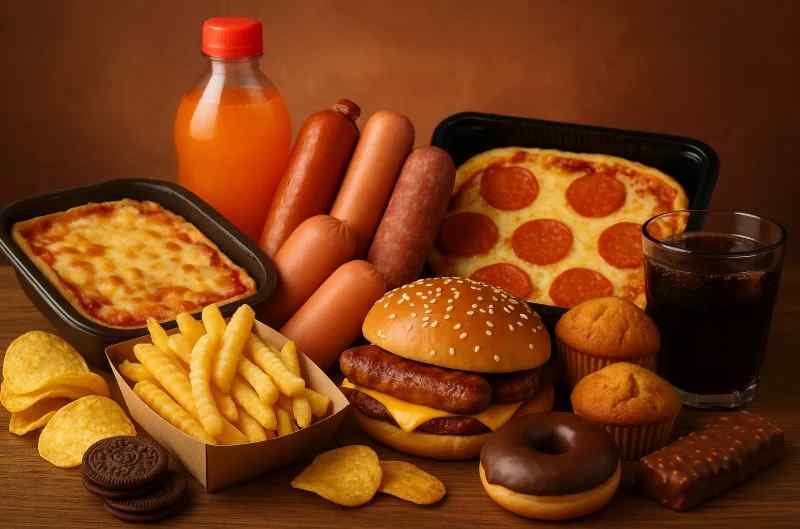A major U.S.-based study has sounded a fresh alarm over the dangers of ultra-processed foods, revealing a 41% increase in lung cancer risk — even in people who’ve never smoked a cigarette.
The findings, which tracked more than 1,700 adults over 12 years, challenge the long-held belief that smoking is the primary threat when it comes to lung cancer. The real danger, it seems, might also be sitting in your kitchen pantry.
Beyond the Cigarette: A Different Path to Lung Cancer
The study followed individuals who all eventually developed lung cancer. Researchers controlled for traditional risk factors — such as smoking history, genetic predispositions, and environmental exposure — yet the data still pointed to one troubling constant: a high intake of ultra-processed foods (UPFs).
Those with the highest consumption of UPFs had a 41% higher risk of developing lung cancer than those who ate such foods sparingly. This held true even among participants who had never smoked in their lives.
“This shows that dietary habits can be a standalone driver of cancer risk,” noted one of the study’s lead authors.
What Exactly Are We Eating?
Ultra-processed foods include items that are heavily manufactured and loaded with additives rarely used in home cooking. Think:
- Frozen dinners
- Packaged snacks like chips and cookies
- Flavored yogurts
- Sugary breakfast cereals
- Sweetened beverages and instant noodles
These products are engineered for shelf life and convenience, but come at a hidden cost — they’re often stripped of nutritional value and packed with preservatives, artificial flavorings, and industrial oils.
Nutritionists: Time to Rethink “Safe” Diets
The assumption that non-smokers are largely immune to lung cancer is now being called into question. For many health professionals, this study adds weight to the growing body of evidence linking ultra-processed foods to chronic diseases — including obesity, type 2 diabetes, cardiovascular conditions, and now, cancer.
Health experts are urging people to reduce reliance on packaged, ready-to-eat meals and instead pivot toward more whole foods, such as:
- Fresh fruits and vegetables
- Legumes and beans
- Whole grains (like brown rice or oats)
- Unprocessed meats and dairy
Shifting toward a less processed diet could be one of the simplest — and most impactful — changes people can make to protect their long-term health.
The Bigger Picture
This isn’t the first time UPFs have come under fire, but this research adds a new dimension to the conversation. It’s no longer just about weight gain or blood sugar. For non-smokers who assumed they were in the clear, this is a sobering reminder: diet alone could push them into the high-risk category for one of the deadliest forms of cancer.
As ultra-processed products dominate grocery shelves and fast-food outlets, the decision to reach for whole, nutrient-rich alternatives might be more than just healthy — it could be life-saving.

